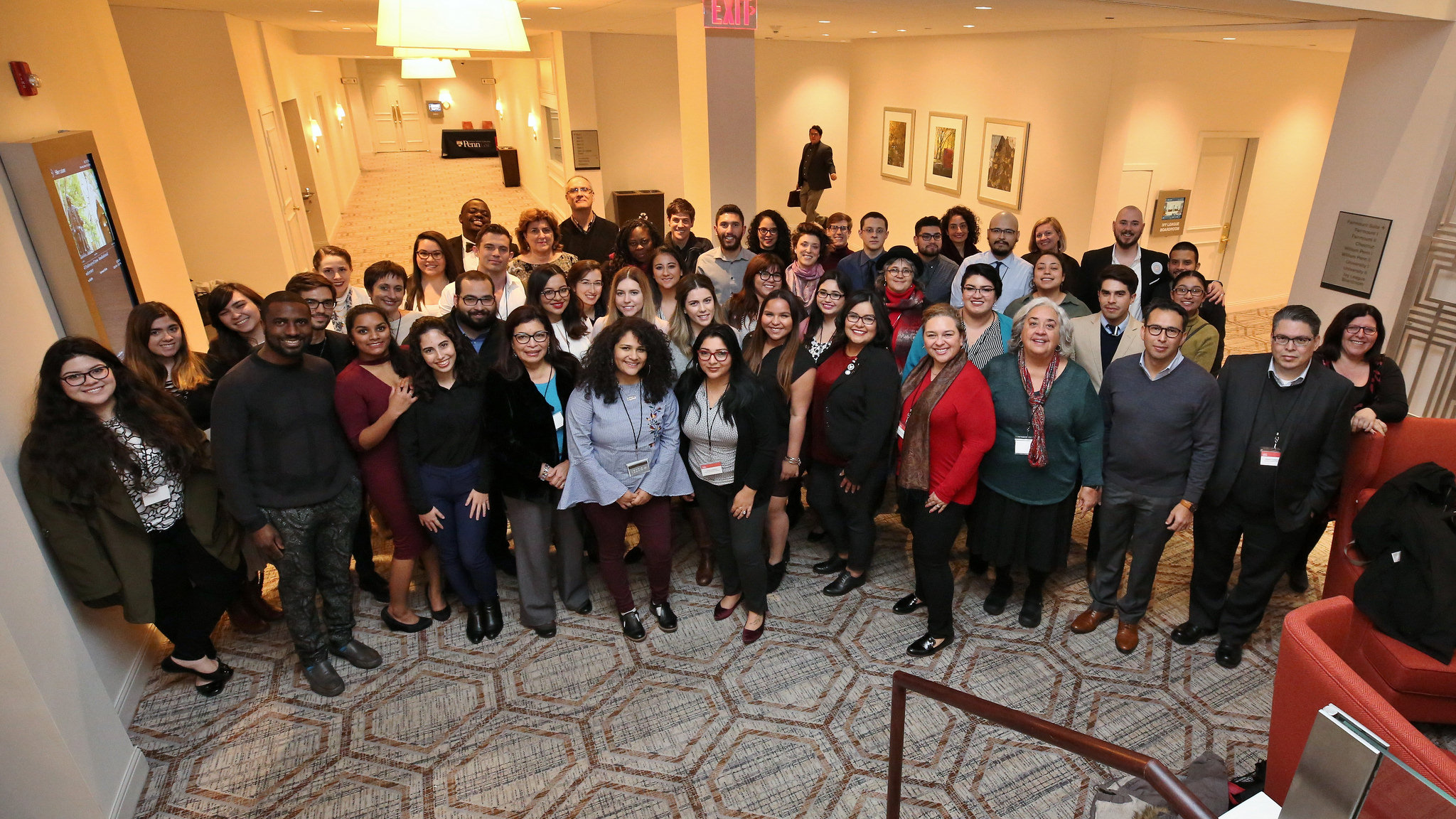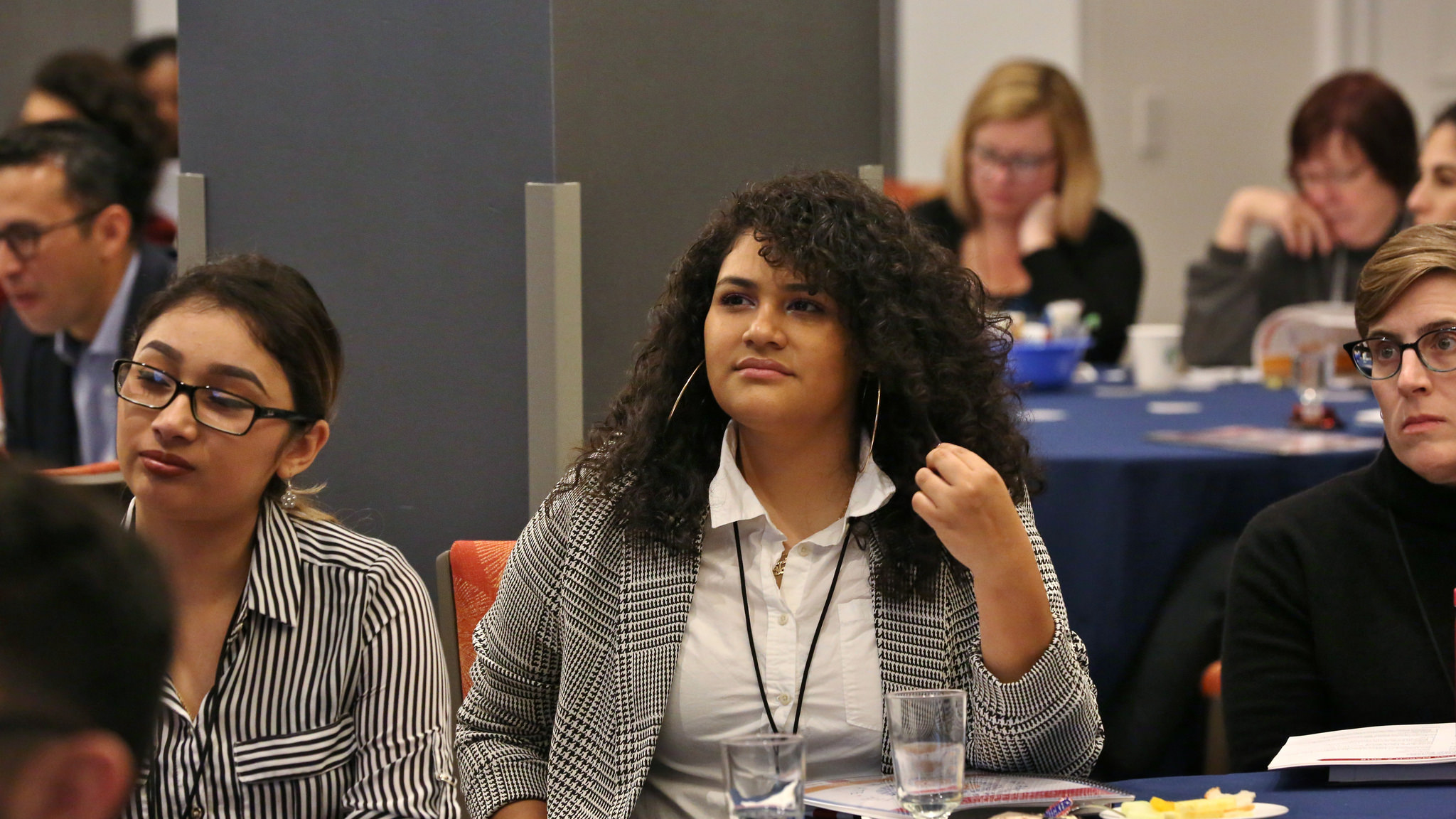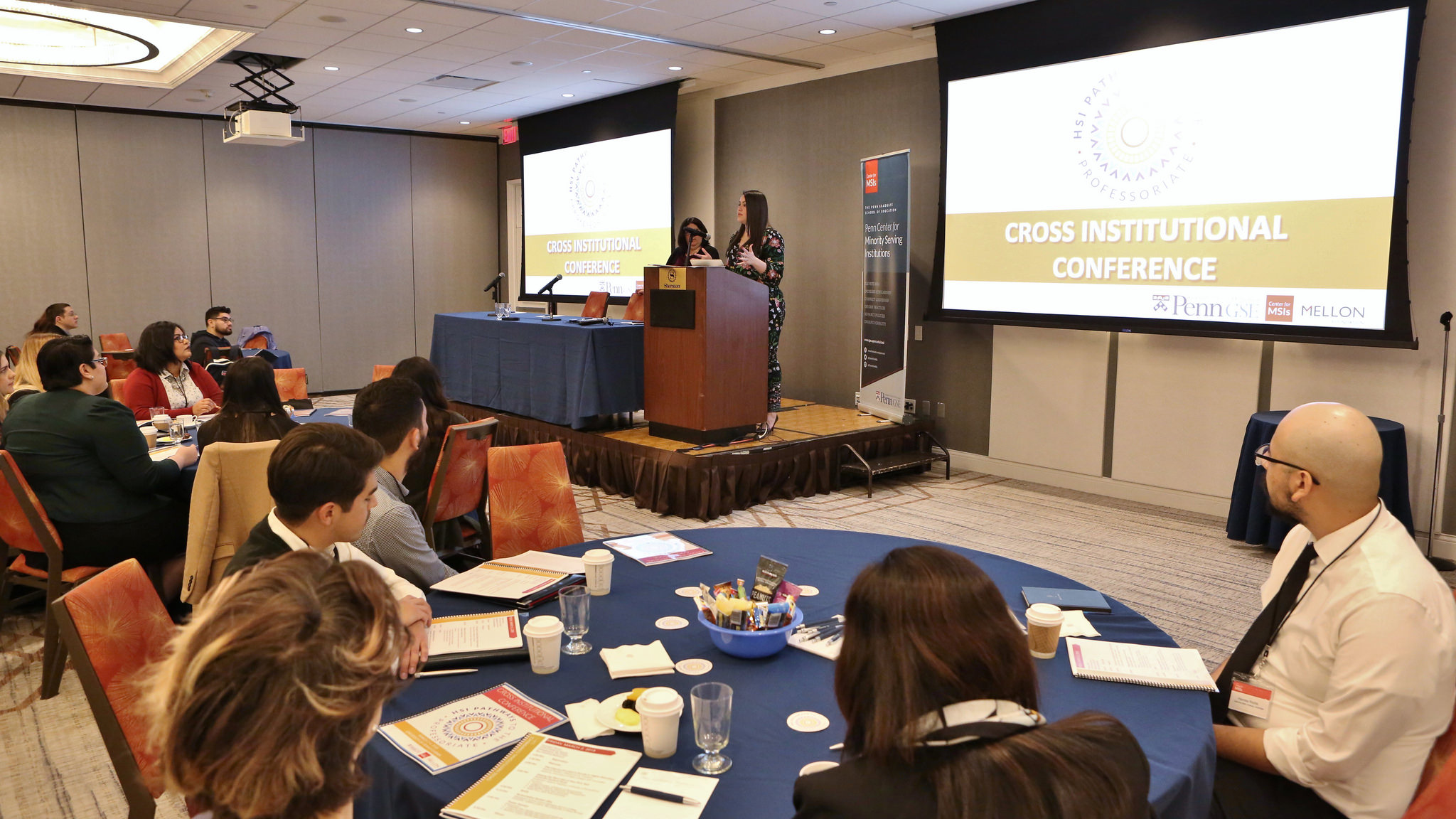
Paving the way for more Latinos in academia
HSI Pathways to the Professoriate program is looking to change the face of academia and boost the number of Latinos pursuing and completing doctorate degrees…
“I think still in the United States there are spaces where people genuinely think because you’re Latinx or because you’re Latino or Hispanic, you can’t be an intellectual,” said Francisco Lopez.
Lopez, a Mexican-American student in his senior year at Florida International University, will be proving that “dismissive myth” wrong as he starts his pathway to the professoriate at Emory University in Atlanta this fall, where he will pursue a doctorate degree in Comparative Literature.
Diversifying academia and changing expectations for Latino students in the way that Lopez described is exactly what HSI Pathways to the Professoriate, a new program housed at the Penn Center for Minority Serving Institutions, seeks to accomplish. Lopez is one of the program’s 30 inaugural fellows chosen from three Hispanic Serving Institutions (HSI) nationwide — Florida International University, University of Texas, El Paso, and University of California, Northridge. Fellows receive mentorship, funding, and academic formation from their junior year through the first year of their doctoral program.
Funded by a five-year, $5.1 million grant from the Carnegie Mellon Foundation, Pathways to the Professoriate was designed by Dr. Marybeth Gasman, director of the Penn Center for Minority Serving Institutions, and Dr. Andrés Castro Samayoa, professor at the Lynch School of Education at Boston College, in order to “[move] the needle with regard to Latinos in the academy becoming professors,” said Gasman, in the face of the reality that 76 percent of the professoriate is white.
“Once I got introduced to the program in the fall of 2016, that’s when I was like, ‘Oh wow, this is actually something that I might be able to do,’” Lopez said, explaining that the program has provided him with the academic and emotional support to feel confident moving into graduate studies.
According to Samayoa, one of the co-principal investigators, that kind of affirmation that the Ph.D. track is possible for Latinx-identifying students is integral to changing the fact that just four percent of the professoriate nationwide is Latino.
Professors who “have shared histories and identities” can inspire students to pursue those same paths, said Samayoa, whose own experience connecting with a faculty member of Guatemalan origin as an undergraduate student from El Salvador ultimately led to him leaving the sciences behind to pursue a doctorate in the humanities.
“It’s not just about saying great, we’re going to have more faculty of color, but it’s about what the presence of us can actually do to transform and improve education,” he added.

Program administrative director and co-principal investigator Lola Esmieu is in charge of coordinating and putting together all the moving parts tied to the three HSIs and five majority research institutions — University of Pennsylvania, New York University, University of California, Berkeley, University of California, Davis, and Northwestern University — who participate in the program. She said that seeing the fellows’ success as their Ph.D. acceptances are now rolling in is satisfying for her both professionally and personally.
“In many ways I feel that the student who is being served by this program is me. I did go to a Hispanic Serving Institution, I was also in the humanities, and I’ve often told the fellows I wish that a program like this existed when I was a student because I never knew that the professoriate was an option for me, until much much later in my career,” said Esmieu, who is in her second year of her doctoral degree program in Education at the University of Pennsylvania.
RELATED CONTENT
“There’s going to be someone that’s sitting in the seats that they currently sit in, or the seats that I once sat in, that will look at them and say wow, I want to be you when I grow up,” said Esmieu of the impact of current fellows.
Some say they are already breaking barriers.

“I think just by me being in the classroom, I can show other Latinas that this is possible,” said Maria Ahumada, a fellow and senior at Florida International University.
Ahumada is weighing options for next year, including a fully-funded acceptance for the English literature doctoral program at University of California at Davis, where she would continue her research on Latinx literature.
For Ahumada, it is important to continue the cycle of mentorship that has benefited her in her journey.
“I love being able to have people around me, and empower them, and lift them up, so I would love to be able to do that during my grad school experience as well,” she said.











LEAVE A COMMENT:
Join the discussion! Leave a comment.